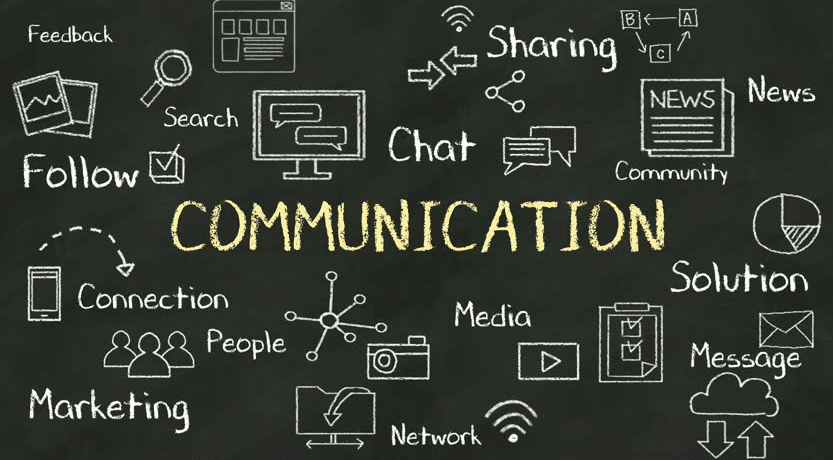In the fast-paced and demanding world of hospitality, high-pressure situations are an inevitable part of the job. Whether it’s dealing with an irate customer, handling a sudden influx of guests during peak hours, or navigating an unexpected emergency, the ability to remain calm, composed, and professional under pressure is a crucial skill for any hospitality professional.
This comprehensive guide aims to equip you with the knowledge and strategies needed to effectively manage high-pressure situations in the hospitality industry. By implementing these techniques, you’ll not only enhance your ability to handle challenging circumstances but also improve overall customer satisfaction and create a positive work environment for yourself and your team.
Understanding High-Pressure Situations in Hospitality
High-pressure situations in the hospitality industry can take many forms, such as dealing with difficult guests, managing restaurant rush hours, or resolving conflicts between staff and customers. These situations often arise due to factors like understaffing, unexpected events, or unrealistic expectations from customers or management.
Examples of high-pressure situations in hospitality:
– Handling an angry customer who is dissatisfied with their experience
– Managing a fully booked restaurant during peak dining hours
– Addressing a sudden influx of guests due to overbooking or a large event
– Responding to emergencies like a fire, medical emergency, or natural disaster
Regardless of the specific scenario, high-pressure situations can have a significant impact on both employees and customers. Employees may experience increased stress, anxiety, and burnout, which can lead to decreased job satisfaction and productivity. Customers, on the other hand, may feel frustrated, dissatisfied, and even consider taking their business elsewhere if their needs are not met promptly and professionally.

Developing a Proactive Mindset
Effectively managing high-pressure situations begins with cultivating a proactive mindset. This involves adopting a positive attitude, building resilience, and developing stress management skills to better navigate challenging circumstances.
1. Embrace a growth mindset: Instead of viewing high-pressure situations as insurmountable obstacles, approach them as opportunities for growth and learning. Recognize that challenges are inevitable and that your ability to adapt and overcome them is what truly matters.
2. Practice mindfulness: Mindfulness techniques, such as deep breathing exercises and meditation, can help you stay present, focused, and grounded in the moment. This can be particularly useful when facing high-pressure situations that may trigger emotional reactions or stress.
3. Build emotional intelligence: Developing emotional intelligence involves recognizing, understanding, and managing your own emotions, as well as the emotions of others. This skill is invaluable in the hospitality industry, where you’ll frequently interact with people from diverse backgrounds and manage their expectations and emotions.
By cultivating a proactive mindset, you’ll be better equipped to handle high-pressure situations with grace, composure, and professionalism.

Effective Communication Strategies
Effective communication is key to successfully navigating high-pressure situations in the hospitality industry. It involves actively listening to understand the root cause of the problem, empathizing with the customer or colleague, and communicating clearly and respectfully.
1. Active listening and empathy: When faced with a high-pressure situation, take a moment to actively listen to the individual’s concerns or complaints. Demonstrate empathy by acknowledging their feelings and perspective, even if you disagree with their approach or behavior.
“I understand that this situation has been frustrating for you, and I’m here to help resolve it.”
2. Verbal and non-verbal communication: Be mindful of your tone, body language, and facial expressions. Maintain a calm and professional demeanor, even when faced with challenging circumstances or agitated individuals.
3. Conflict resolution and de-escalation tactics: If a situation escalates, employ conflict resolution techniques such as finding common ground, compromising, or offering alternative solutions. De-escalation tactics, like speaking slowly and calmly, can also help diffuse tensions and prevent further escalation.
4. Managing challenging customer interactions: When dealing with difficult customers, remain patient, empathetic, and solution-oriented. Avoid defensive or confrontational behavior, and focus on addressing the customer’s concerns in a respectful and professional manner.
Effective communication can transform a high-pressure situation into an opportunity to build trust, foster understanding, and create a positive experience for all parties involved.

Prioritizing and Problem-Solving
In the midst of high-pressure situations, the ability to prioritize tasks and solve problems efficiently is crucial. This involves identifying the root cause of the issue, triaging and prioritizing tasks based on urgency and importance, and collaborating with team members to find creative solutions.
1. Identifying and addressing the root cause: Before attempting to resolve a high-pressure situation, take a step back and analyze the underlying cause. This will help you address the issue more effectively and prevent similar situations from occurring in the future.
2. Triaging and prioritizing tasks: During peak times or emergencies, you may be faced with multiple tasks or demands simultaneously. Prioritize tasks based on urgency, importance, and potential impact on customers or operations.
3. Creative problem-solving and decision-making: High-pressure situations often require creative thinking and quick decision-making. Encourage your team to contribute ideas and consider unconventional solutions that may effectively address the issue at hand.
4. Collaborating and delegating tasks: Don’t hesitate to enlist the help of your team members or colleagues. Effective collaboration and delegation can help distribute the workload, leverage collective expertise, and ensure that tasks are completed efficiently.
By prioritizing tasks, addressing root causes, and engaging in creative problem-solving, you’ll be better equipped to navigate high-pressure situations with confidence and efficiency.

Maintaining Composure and Professionalism
Maintaining composure and professionalism is essential when facing high-pressure situations in the hospitality industry. This not only ensures that you provide excellent customer service but also sets a positive example for your team and helps you learn from these challenging experiences.
1. Staying calm and focused: Develop techniques to manage your emotions and stay calm under pressure. Deep breathing exercises, positive self-talk, or taking a brief break can help you regain composure and approach the situation with a clear mind.
2. Managing emotions and avoiding defensive behavior: While emotions can run high in high-pressure situations, it’s essential to avoid becoming defensive or reactive. Acknowledge and validate the individual’s feelings, but respond with empathy and professionalism.
3. Maintaining a professional demeanor: Even in the most challenging circumstances, strive to maintain a professional demeanor. Speak and act in a manner that upholds the values and standards of your organization and the hospitality industry.
4. Learning from high-pressure experiences: After navigating a high-pressure situation, take the time to reflect on what went well and what could be improved. Identify areas for personal and professional growth, and implement changes to better handle similar situations in the future.
By maintaining composure and professionalism, you’ll not only provide excellent customer service but also serve as a positive role model for your team and contribute to a positive work environment.

Supporting a Positive Team Culture
Effectively managing high-pressure situations in the hospitality industry requires a supportive and collaborative team culture. By fostering an environment that values open communication, ongoing training, and recognition, you can empower your team to handle challenging situations with confidence and professionalism.
1. Fostering a supportive and collaborative work environment: Encourage open communication, teamwork, and a sense of camaraderie among your team members. Create an atmosphere where everyone feels comfortable sharing ideas, concerns, and feedback without fear of judgment or repercussions.
2. Providing training and resources: Invest in ongoing training and professional development opportunities that equip your team with the skills and knowledge necessary to manage high-pressure situations effectively. Provide access to resources such as stress management techniques, conflict resolution strategies, and customer service best practices.
3. Encouraging open communication and feedback: Regularly solicit feedback from your team members regarding their experiences with high-pressure situations. Use this feedback to identify areas for improvement and implement changes that better support your team.
4. Recognizing and rewarding employees: Celebrate and recognize employees who handle high-pressure situations with poise, professionalism, and excellent customer service. This not only boosts morale but also reinforces the desired behaviors and encourages others to follow suit.
By fostering a positive team culture, you’ll create an environment where everyone feels supported, valued, and equipped to navigate high-pressure situations successfully.

Conclusion
Managing high-pressure situations in the hospitality industry is a critical skill that requires a combination of mindset, communication, problem-solving, composure, and a supportive team culture. By implementing the strategies outlined in this comprehensive guide, you’ll be better prepared to navigate even the most challenging circumstances with grace, professionalism, and a customer-centric approach.
For hospitality businesses in need of additional support or staffing during high-pressure periods, Talent Employment Inc, a premier Canadian hospitality staffing agency, can provide valuable assistance. Their team of experienced professionals can help alleviate stress by providing trained, reliable staff to support your operations during peak times, emergencies, or staffing shortages. With their expertise in the hospitality industry, Talent Employment Inc can be a valuable partner in ensuring your team is equipped to handle high-pressure situations effectively while maintaining exceptional service standards.
Remember, every high-pressure situation presents an opportunity for growth, learning, and improvement. Embrace these challenges as opportunities to refine your skills, and don’t hesitate to seek support when needed, whether through training, resources, or strategic staffing solutions.

